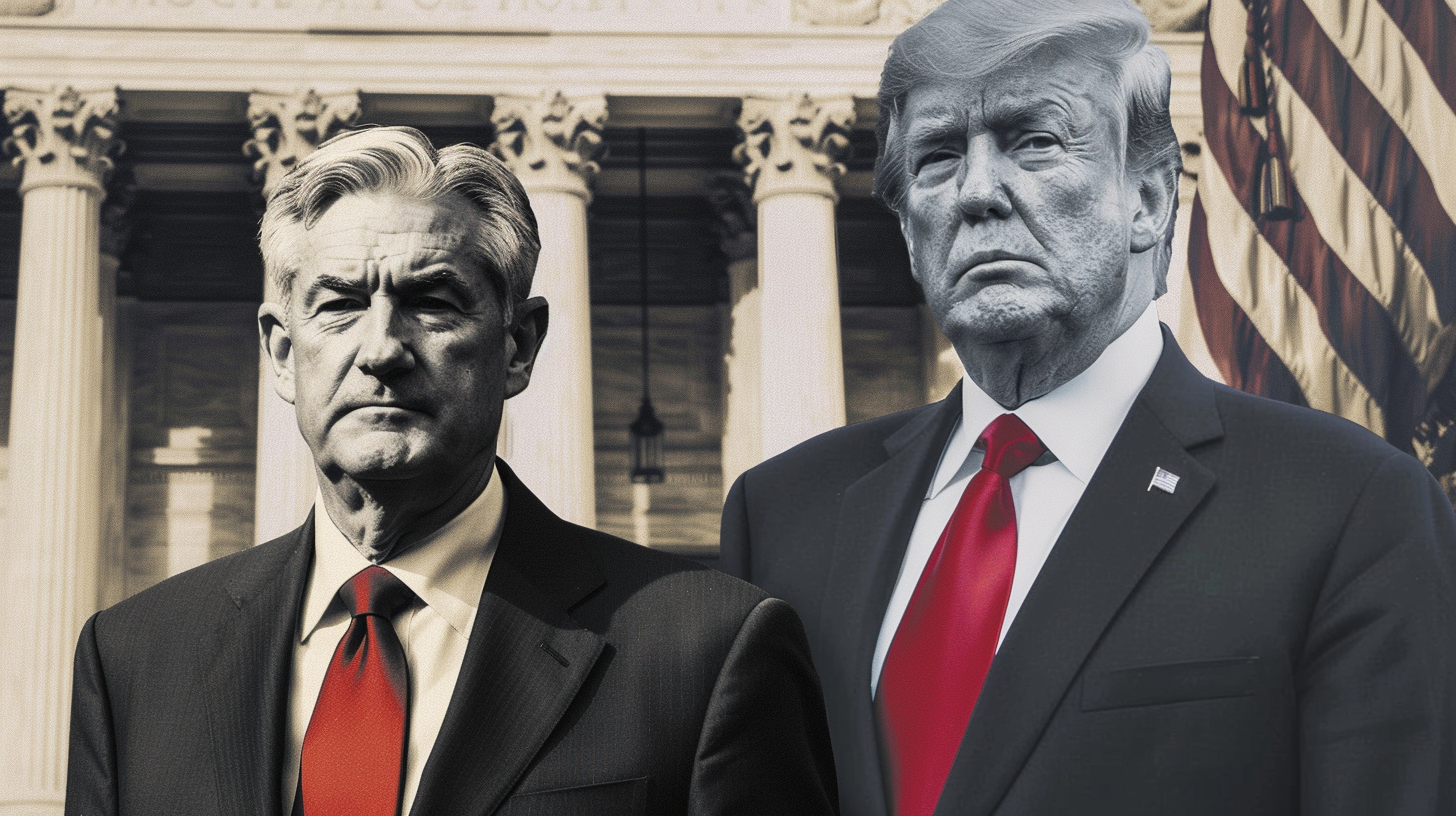What Would Real Tax Reform Look Like?
We’ve done extensive reporting on the GOP tax reform bill as it’s moved through Congress. We’ve highlighted a number of concerns about the plan, specifically the significant expansion of the national debt it will cause. Yesterday, we explained how the impact on the deficit will likely be even bigger than expected because of the incentives found in the latest incarnation of the plan. Most significantly, we’ve echoed Peter Schiff’s view that the plan isn’t really tax reform. It’s tax cuts masquerading as reform.
But all of this leaves an important question unanswered. What would actual reform look like?
Mises Institute senior fellow Mark Thonrton offers some ideas in his latest piece at the Mises Wire. In a nutshell, shrinking the size of government is a key ingredient necessary for real reform.
![]()
It is obvious to most people that real tax reform means reducing taxes and government spending. However, in the current tax reform “package” there are all sorts of changes in the tax rates, tax brackets, deductions, exemptions etc. But the end result is virtually no net tax relief, little economic growth, and a substantial increase in debt. Most importantly, many people will lose valuable tax loopholes and as Ludwig von Mises said, “Capitalism breathes through the loopholes.”
Tax reform is really just a scam against the American people. It does help politicians reap campaign donations from special interest groups. It is an old con job because these groups can’t afford to lose their special place in the tax code. As a result, they contribute money to politicians in Congress to protect their loophole. If that does not work they start a campaign to reestablish their loophole in the future.
There are of course good items in the tax reform package such as the cut in the corporate income tax. In an ideal world, the corporate tax would not exist. Economists of all stripes recognize that it is an irrational tax because 1. It forces corporations to spend tons of money avoiding the tax, 2. It raises little revenue (only 9% of the budget), and 3. It is a double tax on corporate income because corporations pay a tax and then stock owners pay another tax on all the money they gain in dividends and capital gains.
Another promised benefit of tax reform is supposed to be economic growth, but estimates of economic growth under the House plan is just a few tenths of one percent and even that could be blown away with any kind of economic downturn.
If you do not reduce the tax burden very much, you simply do not get a big increase in economic growth. Moreover, the best way to get economic growth is to reduce government spending. Any tax reform law should have mandates that cut government spending. Spending cuts should be significant and across the board. This is especially so with entitlements because they increase the real national debt going forward from $20T to $200T. This places a great burden of uncertainty on the economy.
The reason that spending cuts are vital: you need to recognize that the private sector is the productive sector. Even with a 50% tax burden on its back, the private sector is what produces our standard of living. The government sector does not really produce anything on its own and much of what it does is detrimental to our standard of living. In addition to being detrimental, much of what government spends our resources on is highly costly. For example, the cost of government education is almost twice the cost of a comparable private education. The cost of housing in neighborhoods with good public schools is almost 1/3 higher on a comparable basis than in districts with low performing schools.
Transferring resources and labor to the private sector while reducing the tax burden will make the economy much more productive and significantly raise the standard of living.
The federal government has control over enormous amounts of land and natural resources. A 2010 report from the Congressional Research Service 2010 estimates that there are more than 70,000 of buildings controlled by the federal government that are either vacant or underutilized. The federal government also has redundant military bases, spy networks, and regulatory agencies so that some large amount of budget cutting would be entirely painless and actually add money to the federal budget.
Mandating spending cuts now and in the future will reduce uncertainty which is one of the biggest drags on the economy and the easiest to fix.
The Senate’s version of the bill repeals the individual mandate in Obama Care. That would be one small step towards fixing health care. Health care in the US is the most expensive in the world, but still rates as mediocre in terms of outcomes. It is also the area of the economy with the most significant government intervention. The combination of policies means that it subsidizes consumption so that people are insulated from the true cost of health care choices. The government also monopolizes every aspect of production, including doctors, hospitals, and prescription drugs. This is a very unhealthy combination. Getting rid of the individual mandate is a good step in the right direction. But it is only one of many necessary steps.
You don’t really see the problems of health care in such areas as veterinarians, dentists, and plastic surgeons. The reason for that is that they do not have much monopoly power from government or government-subsidized insurance. They are largely cash businesses with relatively high quality and low prices.
Just remember, that when it comes to tax reform, no matter what they say or how they vote, it is just a complicated process to raise campaign contributions from special interest groups.




 Beneath the veneer of headline job gains, the American economy teeters on the brink: native employment dwindles as part-time and immigrant jobs surge. Government hiring camouflages looming recession warnings. Inflation and political blunders worsen the crisis, fueling public outrage at the establishment’s mishandling of the economy.
Beneath the veneer of headline job gains, the American economy teeters on the brink: native employment dwindles as part-time and immigrant jobs surge. Government hiring camouflages looming recession warnings. Inflation and political blunders worsen the crisis, fueling public outrage at the establishment’s mishandling of the economy. On April 5 1933, Franklin D. Roosevelt abandoned the gold standard, wielding questionable legal power amidst America’s dire economic depression. His whimsical approach to monetary policy, including coin flips and lucky numbers, unleashed unprecedented inflation and price increases that have since amounted to nearly 2500%. Our guest commentator explores this tragic history and the legacy […]
On April 5 1933, Franklin D. Roosevelt abandoned the gold standard, wielding questionable legal power amidst America’s dire economic depression. His whimsical approach to monetary policy, including coin flips and lucky numbers, unleashed unprecedented inflation and price increases that have since amounted to nearly 2500%. Our guest commentator explores this tragic history and the legacy […] Welcome to the world of modern economics where the term “inflation” no longer signifies the increase in the quantity of money, but has evolved into a plethora of buzzwords. From “shrinkflation” to “greedflation,” these new terms and semantic shifts are by no means harmless but a manipulation of popular sentiment. Von Mises said they play […]
Welcome to the world of modern economics where the term “inflation” no longer signifies the increase in the quantity of money, but has evolved into a plethora of buzzwords. From “shrinkflation” to “greedflation,” these new terms and semantic shifts are by no means harmless but a manipulation of popular sentiment. Von Mises said they play […] Assuming CPI measurements are not understatements, the dollar’s value has plummeted by a staggering one-fifth since 2020, yet, rather than acknowledging its role in fueling this economic turmoil, the Biden administration deflects, casting capitalism and corporate greed as the villains. The latest February CPI data show more signs of the upcoming inflation bloodbath.
Assuming CPI measurements are not understatements, the dollar’s value has plummeted by a staggering one-fifth since 2020, yet, rather than acknowledging its role in fueling this economic turmoil, the Biden administration deflects, casting capitalism and corporate greed as the villains. The latest February CPI data show more signs of the upcoming inflation bloodbath. The Federal Reserve is often viewed as a neutral guardian of the economy, tasked with safeguarding employment and ensuring stable prices. However, the Fed is run by individuals who, like anyone else, are swayed by certain motivations. Do the people behind the Fed truly have the incentive to remain impartial? Our guest commentator demystifies the […]
The Federal Reserve is often viewed as a neutral guardian of the economy, tasked with safeguarding employment and ensuring stable prices. However, the Fed is run by individuals who, like anyone else, are swayed by certain motivations. Do the people behind the Fed truly have the incentive to remain impartial? Our guest commentator demystifies the […]